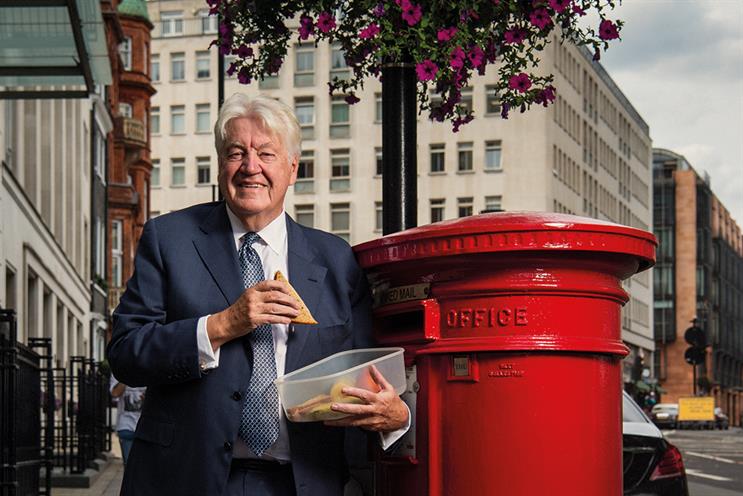It was 1956 when my dad bought our first gramophone and I used money I’d earned from my milk round to buy my first record. It was Frank Sinatra’s How Little We Know. Looking back, it was a prophetic choice.
As a 16-year-old, how little I knew of the world beyond working-class Peckham, where I grew up. At Wilson’s Grammar School, which I left with O-levels in English literature and geography, it’s fair to say that I was never a serious challenge to the intellectuals in my year.
At the time, the school was only interested in the pupils who were going into the sixth form. My O-level results aside, I couldn’t see myself as university material. For one thing, none of my family had gone to university. For another, they couldn’t possibly afford to send me.
I’d little idea of what I was going to do. I toyed with the idea of training to be an airline pilot but my poor eyesight put an end to that. I even considered the civil service as a career but – when push came to shove – I couldn’t go through with it.
Instead – as one of the underperforming Wilson’s boys sent to see the youth employment officer – I took my cue from Sinatra. It was a time when Britain was desperately short of young male workers to replace those tragically killed during the war. So, when asked by the youth employment officer what I wanted to do, I opted to aim high. I wanted to join a record company and meet the stars, I told him.
Thankfully, he was helpful and encouraging. "You mean advertising," he remarked, as he handed me three cards and three addressed envelopes to send to three London ad agencies – SH Benson, John Haddon & Co and J Walter Thompson.
Bensons and JWT actually replied (the 1950s were more genteel and gracious times). Bensons even offered me a job in its dispatch department in Kingsway at £3 and 10 shillings (£3.50) a week.
Shortly afterwards, I was summoned by JWT to present myself at Berkeley Square for an interview for a similar job and weekly wage.
Although it was US-owned, JWT was a quintessentially British agency – full of elegant chaps with double-barrelled surnames and a penchant for sherry.
Its collective personality couldn’t have been better epitomised than by the woman from the personnel department (no such thing as human resources in those days). In her mid-forties and dressed in twinset and pearls, she spoke like a BBC announcer of the time. "Just to let you know, we have a staff canteen here," she said as the interview concluded. "Sadly, you won’t be able to afford to eat there but you may eat your sandwiches in Berkeley Square."
I wondered what gave JWT the right to behave as if it "owned" Berkeley Square. I decided there and then that I’d take the Bensons job.
You may eat your sandwiches in Berkeley Square
In 1997, accompanied by Anita Frew, an Abbott Mead Vickers BBDO board member who became deputy chairman of Lloyds Banking Group, I returned to Berkeley Square. It was the day my agency was ranked number one for the first time, leapfrogging JWT and deposing Saatchi & Saatchi at the top. I marked it by bringing my lunch with me – a Tupperware box of smoked salmon sandwiches – which I ate in the square.
I can’t fully explain why I did this. I don’t believe my interviewer intended to put me in my place and I was never antagonistic towards JWT. Indeed, I’ve happy memories of being entertained on the JWT premises in Hay’s Mews by Allen Thomas and Miles Colebrook, the worldwide creative director and group president respectively.
But I can’t pretend I didn’t experience a bit of schadenfreude that day recealling how I’d once been dismissed as "cannon fodder". I suppose I thought I was squaring the circle.
It would be easy to believe that my experience at JWT influenced the way we looked after our staff at AMV. While it’s true we believed treating them with respect would bring tangible rewards, I believe others in the industry made a greater impression on me – people such as David Williams of David Williams & Ketchum, and David Kingsley of Kingsley Manton & Palmer, who always treated me as an equal, never a serf.
They got my absolute attention and loyalty by trusting me. David Abbott and Adrian Vickers, my fellow founding partners, shared those values. We always believed that if we trusted people and respected their dignity, they would always go the extra mile for us and our clients.
It’s easy to forget the importance of this at a time when everybody wants more for less. We shop on Amazon because we think we can buy cheaper. So we can’t bitch when our clients do the same to us. We must always remember that no algorithm can replicate the human creative mind and the "gold dust" it has enabled the industry to produce down the years. We’ve allowed ourselves to be relegated to the role of experts at targeting when we’re really in the persuasion business.
That said, I’m optimistic about the future. I have a real sense that people in our industry and beyond it are being treated with more respect and I’m encouraged by Marks & Spencer’s hiring of the retail entrepreneur Julian Richer to advise on culture change and staff communication.
As long as we have agencies that do what we’ve always done best – persuasive communication – and give their staff the respect they deserve, we’ll be OK.
Peter Mead worked at the dispatch department at SH Benson and he's a founder of Abbott Mead Vickers


